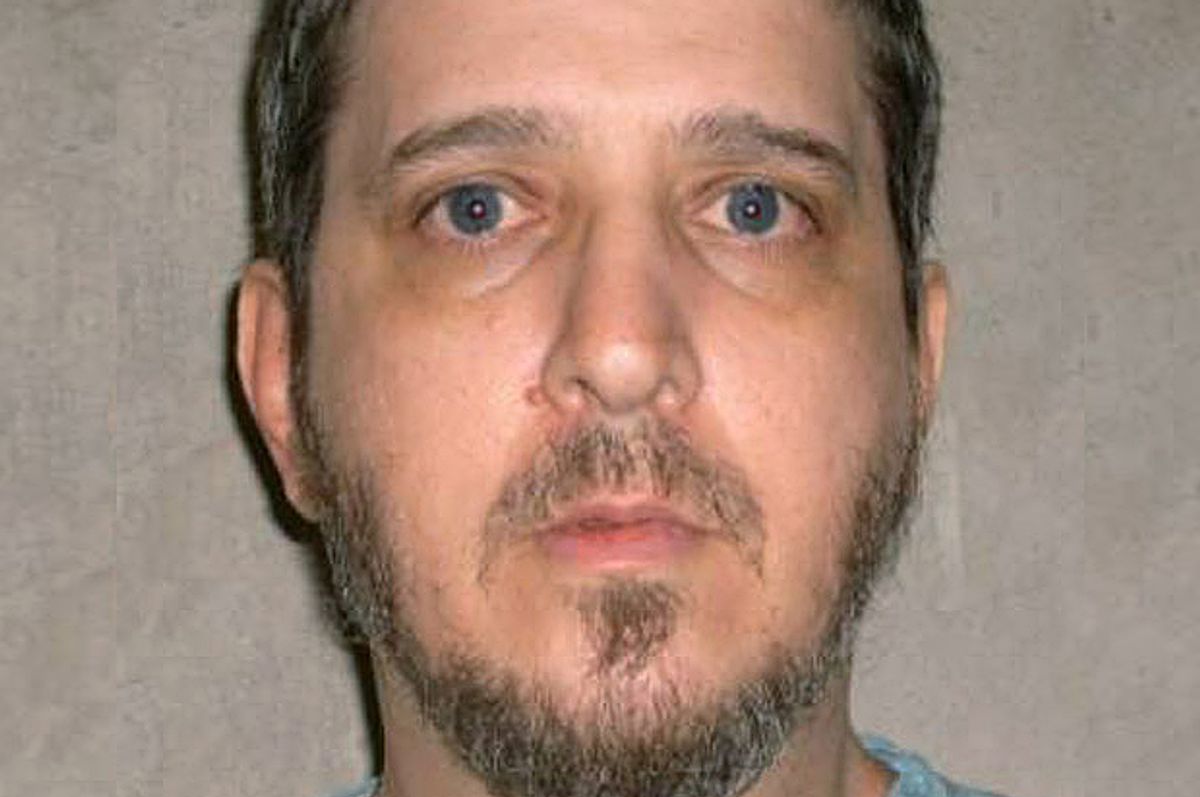On Wednesday, Richard Glossip was spared from being killed by the state of Oklahoma for the third time. Glossip, who has been on death row since 1998, was minutes away from his death when the state's governor, Mary Fallin, called a halt to the execution. There was some confusion, she said, about whether or not the right combination of drugs was about to be used to take Glossip's life. On Thursday, Oklahoma's attorney general requested an indefinite stay on all the state's executions while he reviews its drug protocols, though that does not mean that Glossip won't be executed at a later date
Followers of legal history could not have missed what was happening: The state was literally tinkering with the machinery of death, in an eerie echo of the phrase used by Justice Harry Blackmun when he declared that he would no longer vote to uphold the constitutionality of the death penalty.
On one level, there was no great surprise in this. Ever since the guillotine, people have put a great deal of effort into trying to tame the essential barbarism of executions. They have all failed—eventually, every single method, from beheading to hanging to electrocution, is deemed beyond the pale—but it is their attempts to try that make the project even more hideous. The phrase "banality of evil" is never more apt than when it is applied to a bunch of state officials mixing up the drugs needed to kill a man.
Yet it is somewhat odd that there should have been such confusion over the way Oklahoma was going to kill Richard Glossip, because the methods needed to end his life have been debated ad nauseum for years. It was Glossip's name on this year's Supreme Court decision which approved the drugs Oklahoma wanted to use to kill him, even after they had caused other prisoners nightmarish pain. Samuel Alito's majority decision for that case declared both that prisoners should not expect a painless execution and that it was their responsibility to find better drugs to be used on themselves. It was the kind of conclusion one so wants to deem otherworldly, like something out of dystopian fiction, but it was instead the perfect encapsulation of the particular horror inherent in the fantasy that the death penalty can somehow be wrestled into submission and made civilized.
There is, of course, an extra layer to Glossip's case: He could very well be innocent. His conviction relied almost entirely on the testimony of a man named Justin Sneed, who was spared the death penalty himself after testifying that Glossip paid him to kill his boss, Barry Van Treese. Glossip was never accused of actually carrying out the crime, and there was no physical evidence tying him to the murder.
The fact that Oklahoma could once again be weeks away from killing an innocent man is, in its way, all the argument you need for the death penalty's essential inhumanity. But we make a mistake if we focus too much on that. The death penalty is not wrong because it so often catches the wrong people in its grip. It is wrong because it is a stain on the soul—because even if all of the people executed were truly guilty of their crimes, it would still be wrong. No amount of scientific inquiry, of studious rumination on which drug is best to stop the heart, will be able to change that. We will never know precisely what happened between Richard Glossip and Justin Sneed, but if Oklahoma carries out its execution of Glossip, the identities of the criminals will be very clear indeed.

Shares